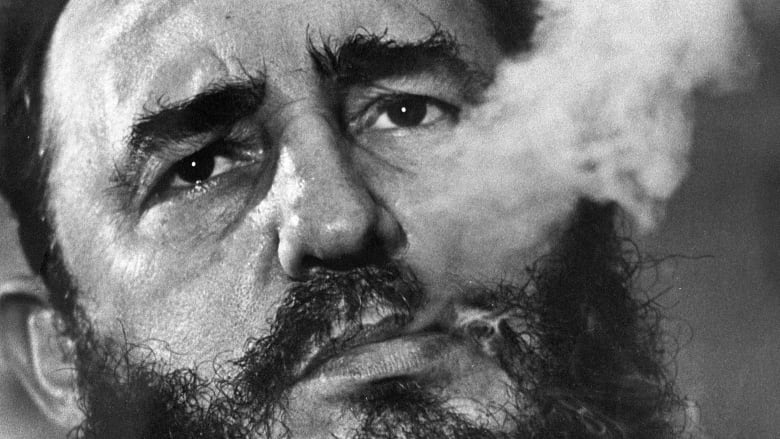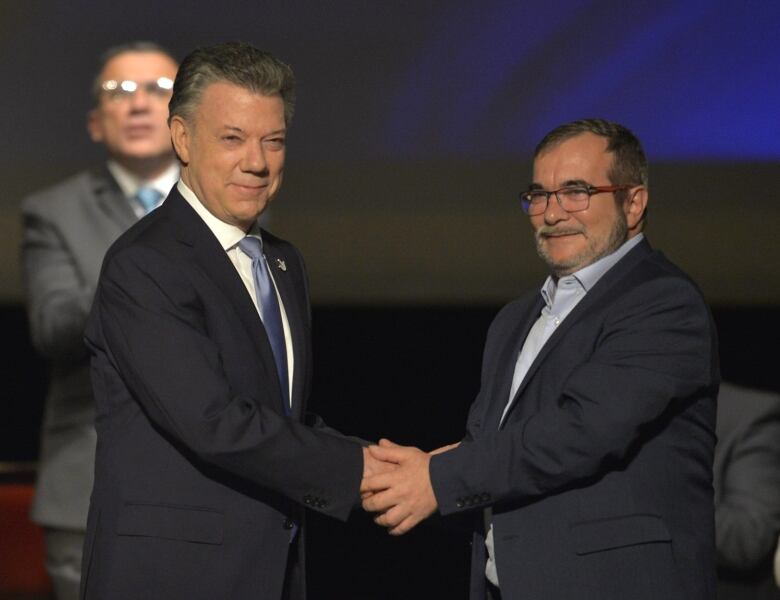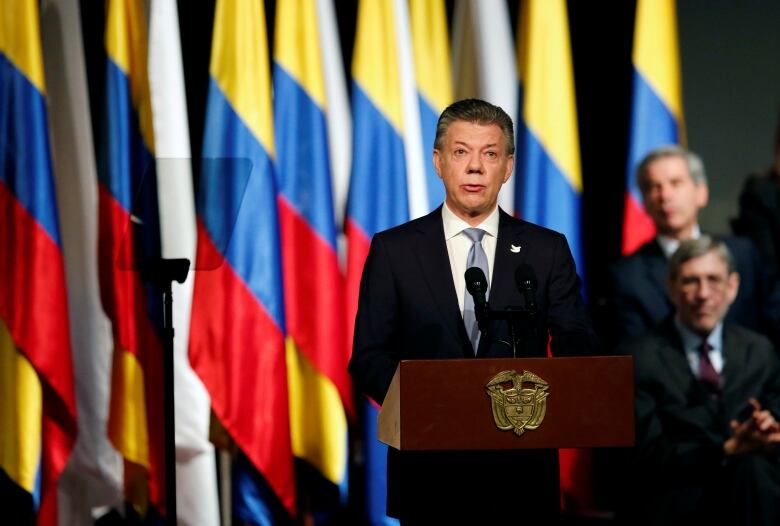Cuba's dictator was Colombia's peacemaker: How Fidel Castro helped end conflict with FARC
Revolutionary leader spent final 2 decades encouraging guerrilla groups to lay down arms

When he died Nov. 25 at age 90, Fidel Castro was widely remembered as a communist dictator dedicated to spreading violent revolution across Latin America. Some Colombians, however, have come to view him as a peacemaker.
After his own guerrilla forces seized power in Cuba in 1959, Castro provided moral authority and support to numerous Colombian guerrilla groups. But he spent his final two decades encouraging them to lay down their weapons.
With Castro's blessing, Cuba in 2012 became the host country for peace talks between the Colombian government and the country's largest rebel group, known as the FARC.
The day before Castro died, the two sides signed a historic peace treaty bringing an end to Latin America's longest guerrilla war. And in the same week that his ashes made their final journey across the island to Santiago, Colombia's congress approved the peace deal with FARC.
"By the end of his life, Fidel Castro recognized that the armed struggle was not the correct path," Colombian President Juan Manuel Santos declared. "In doing so, he contributed to bringing an endto the Colombian conflict."
'Celebration in hell'
To be sure, not everyone agrees. More than 220,000 people have been killed in Colombia's various guerrilla conflicts, and many blame Castro for promoting and prolonging the country's suffering.
On news of Castro's death, Maria Fernanda Cabal, a right-wing Colombian senator, tweeted: "Today, there is a celebration in hell."
Still, analysts describe Castro as more of a godfather figure to Colombian revolutionaries, one who never played a dominant role in their uprisings.
Fidel was a crucial figure in the life of the ELN.- Len Valencia, political analyst
That's partly because Colombia's rebels were self-financing, earning millions of dollars through extortion, kidnapping, and drug trafficking. Thus, they didn't depend on Cuba or other outsiders for survival. Indeed, some Colombian rebel groups pre-date Castro.
The FARC, for example, started out as a group of peasant farmers who took up arms in the 1950s to protect themselves from an outbreak of political violence. They later morphed into a communist insurgency in the early 1960s. FARC leaders admired Castro but often rejected his advice.
Otty Patio, a founding member of a now-defunct Colombian guerrilla group called the M-19, said Castro constantly preached about the need for revolutionary unity. But FARC leaders ignored his pleas to unite with the M-19 and other rebel groups to form a single, powerful insurgency.

Instead, the FARC spent 52 years in a futile effort to seize power a sharp contrast to Castro, whose rebel army overthrew Cuban dictator Fulgencio Batista in just 25 months.
Castro was also a fierce critic of kidnapping and drug trafficking which helped fill the FARC's war chest, Patio said.
Castro had closer ties to the National Liberation Army, a Colombian rebel group known as the ELN. It which was founded by university students and Roman Catholic priests, some of whom had received scholarships to study in Cuba in 1962. They began military training on the island then returned to Colombia in 1965 to wage war against the government.
Castro did not provide much in the way of money or arms to the ELN. But he allowed the rebels to use the island as a safe haven, a place to recover from war wounds, and as a diplomatic outpost to meet with other insurgents and radical groups from around the Americas, said Len Valencia, a former ELN fighter who is now a Bogot political analyst.

"Fidel was a crucial figure in the life of the ELN," Valencia said.
Even as the Cold War ended and other rebel groups around Latin America disbanded or were defeated, the Colombian war dragged. Rebels, soldiers and paramilitary groups carried out widespread human rights abuses. By 1993 when Castro made an official trip to Colombia, he had soured on the war. In a speech, he urged the country's guerrillas to "follow the path of a negotiated peace so that not another drop of blood is spilled."
Castro became convinced they would have a better chance of taking power through the ballot box. In the late 1990s and 2000s, left-wing governments were elected across much of Latin America.
In 2008, Castro published a book called Peace in Colombia in which he urged the country's rebel groups to disarm and form political parties.
Speaking of presidents in Venezuela, Bolivia and Ecuador, Adam Isacson of the Washington Office on Latin America, said: "Fidel's argument has had a lot of credibility over the past 10 to 15 years, as Hugo Chavez, Evo Morales, Rafael Correa and so many other leftist leaders got elected. They carried out revolutions without warfare."
In Colombia, the M-19 disarmed in the early 1990s and some of its members went on to become successful politicians, including Gustavo Petro who was elected Bogota mayor in 2011. The ELN, which has held exploratory talks with the Colombian government in Cuba, has also pledged to begin formal peace negotiations.
But the biggest breakthrough came in 2012 when Cuba by then ruled by Castro's brother Raul became the site of negotiations aimed at demobilizing the FARC. The resulting peace accord was ratified by the Colombian congress this week and FARC fighters now have about five months to gather in zones around the country and turn in their weapons to UN inspectors.
Though not present at the talks, the ailing Castro remained an inspiration to the FARC delegation. After he died Ivn Mrquez, the FARC's chief negotiator, called the Havana peace accord "our final homage" to Castro.













_(720p).jpg)


 OFFICIAL HD MUSIC VIDEO.jpg)
.jpg)



























































































